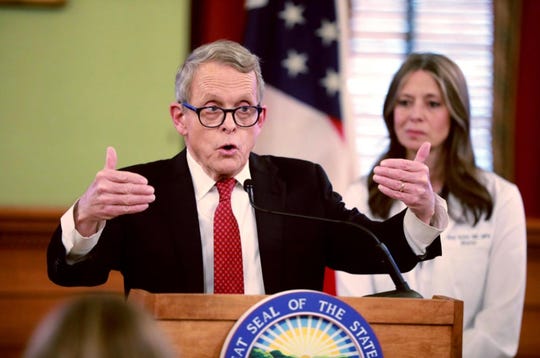Ashley Nickels is an assistant professor of political science at Kent State University. Amanda Clark is an adjunct professor of political science at Nova Southeastern University and an alumna of the Kent State University PhD program in political science. In this joint essay Nickels and Clark explore the impact of the COVID-19 virus on local democratic processes during this time of crisis as well as longer term implications for democracy.
The COVID-19 pandemic has been unprecedented, at least in contemporary terms. As individuals, communities, nonprofits and governments around the world attempt to mitigate the spread of this deadly and highly contagious disease, people’s lives have been changed in unimaginable ways.
Schools have moved online. People are being laid-off. Jobs have been eliminated. Childcare centers and playgrounds are closed. Social service organizations are balancing the demand of protecting their employees while providing essential services to their constituents. Running beneath the surface of every virtual conversation is some mixture of fear, sadness, anger, but also; optimism and hope!
While many of us are focused on the day-to-day impact of social distancing, bigger questions persist. These questions include: how will COVID-19 and/or emergency responses (re)shape the body politic—and what are the implications for local democracy? As we navigate this pandemic, how can we avoid missteps in safeguarding public trust?
We are deeply committed to the values of deliberation and contestation, engaged listening, and critical self-reflection. It is from these values that we hope for a public sector that welcomes and fosters a politically engaged citizenry. As we see it, these values are the foundation for social equity--the fourth pillar of public administration.
This pandemic is forcing a discussion on ideas that many public administration scholars and practitioners have been discussing for quite some time within smaller circles, including: the financial impact of reducing the size and scope of government, the digital divide and whether broadband Internet access is a right, and questions of voter access. We believe that several issues need to be addressed during this crisis:
- How will emergency interventions, like stay at home orders and delayed primary elections, impact politics in the long term? Emergency interventions can be important tools for ensuring our health and safety. However, should we worry about how, when, and to what degree public officials will lift emergency orders, or be concerned about how these policies will impact [local] democracy and public accountability?
- What are the socio-political consequences of our patchwork responses? Will our interventions have the (unintended) consequence of increasing socio-political inequities? For example, in some communities, school closures were paired with emergency food services and supplemental online education, while others are facing food insecurity and a threat of furthering the “education gap.”
- How did the crisis (re)shape people’s perceptions of government and/or elected officials? How will government responses shape our trust in government? The variation in how public officials have framed the public health crisis also has likely implications.
- The nature of grassroots governance techniques require public gatherings. Will this extended period of social distancing lead to a breakdown in those weaker grassroots and organizing networks that really relied on regular face-to-face meetings to maintain their connections?
- Writing about COVID- 19 responses and the likely socio-political impact is complicated. There are many variables to consider. Yet, it is during times of crisis that new ideas are often heard, as our traditional plans and procedures are significantly and permanently changed. Ideas linked to the support and betterment of society for all Americans are receiving more thought and discussion as the social distancing guidelines have changed the way in which people believe things can and should be done.
There are many mechanisms for action which, across space and time, will shape future politics.

